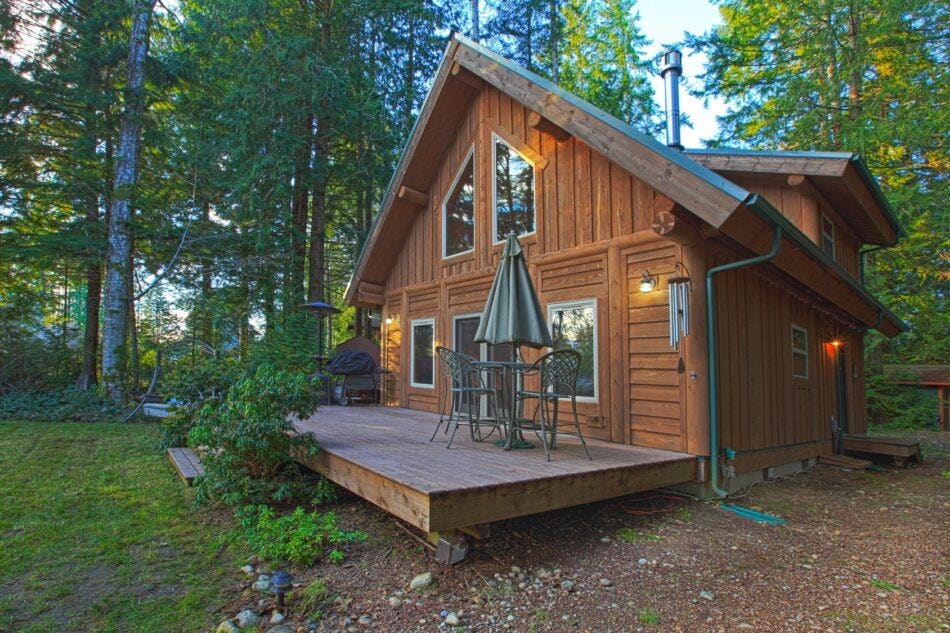Protecting your seasonal home can have its challenges. It faces all the risks of your primary residence with the complication of being empty for long periods of time. It also may be remote. Seasonal home insurance addresses these unique circumstances and helps you protect your home. This article will discuss why this specialty coverage is needed what homes can qualify for seasonal home insurance what is and isn’t covered the benefits of this protection the difference between seasonal and regular home insurance and how to insure your seasonal home.
Why is specialty insurance needed for seasonal homes?
You need specialty protection for seasonal homes because they are:
- Often left empty for long periods of time
- Can be remote
- May face increase risks like wildfire and flooding
- May have more outbuildings
- Belongings may include sports equipment and unique items
- There may be increased risk for personal injury liability claims (i.e. someone gets hurt on your property and sues you)
Seasonal homes are often more likely to experience damage and for it to go unnoticed for some time. This makes them riskier to insure for insurance companies.
What homes qualify for seasonal home insurance?
Any home that you don’t live in full time may qualify for seasonal home insurance including:
- Vacation homes
- Cabins or cottages
- Mobile homes
- Condos
- Short term rentals
What does seasonal home insurance cover?
If the cause of damage is covered seasonal home insurance may cover:
- Repairing or rebuilding your seasonal home
- Replacing damaged belongings
- Repairing or rebuilding damaged outbuildings
It will also include coverage for personal liability claims. This helps to protect you financially if someone gets hurt at your seasonal home.
Remember that every insurance company is different and may offer additional protection as part of their seasonal home insurance or as an optional add-on. Talk to your broker to figure out what coverage you should have.
What isn’t covered by seasonal home insurance?
Seasonal home insurance may not cover:
- Travel trailers or motorhomes on the property
- Boats and other watercraft on the property
- Certain types of damage like water damage
- Commercial buildings or operations
Some policies may allow trailers or boats to be added to the coverage. Some insurance companies will also offer separate protection for these items.
The types of damage that are covered will depend on the policy. There is often add-on coverage (known as endorsements) that may extend your protection to include risks like water damage or earthquakes.
If you are running a business out of your seasonal home you’ll likely need commercial insurance. Talk to your broker about your plans and they’ll be able to advise you.
What are the benefits of seasonal home insurance?
The benefits of seasonal home insurance include:
- Protecting your seasonal home from a variety of perils
- Protecting your personal belongings at your seasonal home in case something happens
- Protecting yourself financially – if damage does happen you’ll need to pay far less out of pocket
- Peace of mind
What’s the difference between seasonal and regular home insurance?
Seasonal home insurance and regular home insurance are quite different. Seasonal home insurance is often more basic when it comes to what’s included with the policy. It may also be more limited with its protection depending on the policy and the seasonal home being insured.
Essentially seasonal home insurance is specifically designed for homes that sit empty for long periods of time. These homes are more susceptible to damage.
How do I insure a seasonal home?
Insuring a seasonal home starts with calling your broker. They’ll speak with you about the home including:
- The type of property
- The home’s location
- The type and number of outbuildings
- The rebuild value of the home
- The replacement value of all of your belongings stored there
- The home’s heating electrical and plumbing systems
- The home’s roof
- Any risks near the home such as a pool lake river and more
- How much time you plan to spend at the home
- Security and damage prevention devices like alarms sprinklers and sump pumps
Answer your broker’s questions honestly as they are part of the seasonal home insurance application process. Lying is insurance fraud and can result in your home not being properly covered.
You will also likely be asked to provide photos of the property as well as other documents.
Getting your seasonal home insured is not difficult but it is important to understand your coverage. Your broker is your best resource – they can explain the policy to you and get you competitive seasonal home insurance quotes.

